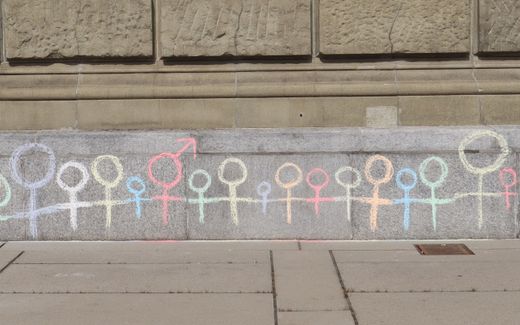Column from Italy: Even conservative Italy does not escape the gender question

Angela Carini (L) of Italy abandons her bout in the Women 66kg preliminaries round of 16 against Imane Khelif of the Boxing competitions in the Paris 2024 Olympic Games. Photo EPA, Yahya Arhab
Christian Life
The issue of transsexuality seems to be at the centre of the debate in Italy these days, and the reactions are very polarised.
The case of the Italian boxer Angela Carini, who found herself in the Olympic ring with the Algerian Imane Khelif, who, according to the information that has emerged, is "intersex" and has physical changes that would allow her to compete with greater strength, has been in the news for days.
In theory, this case is not about the rights of the LGBQT community but rather about a medical condition and rules for sports competitions that must take these variations into account to allow for fair fights.
Nevertheless, the very tense climate surrounding these issues has ignited a spark. Public opinion was divided, and the crux of the matter became that, above all else, even in the case of athletes, what matters is how you feel. Biology should only be an adjunct to our beliefs and how we feel most comfortable.
General impact
Increasing ideological pressure has also led to an ambiguous Supreme Court ruling just this week that opens up dangerous possibilities.
In February, the court in Bolzano, Italy, recognised the possibility for a non-binary transgender person to identify on documents as the third gender (neither male nor female).
However, the Italian law on rectifying the civil registry –i.e. the gender reassignment– obliges one to choose between the female and the male gender, so the issue was referred to the Constitutional Court.
The Constitutional Court said no. According to the Court, it would be unthinkable to define by law a "third gender" with regard to marital status because, as the ruling states, "it would have a general impact, which would necessarily require a systemic legislative intervention, on the various sectors of the legal system and on the numerous institutions that are currently regulated by binary logic.
Family law, labour law, sports law, the regulation of marital status and first names, and the adaptation of "places of contact" (prisons, hospitals, and the like), the judges explained, are all thought in a "binary" key, that is, male and female. The introduction of a "non-binary" gender would be a legal revolution that cannot be achieved by a ruling.
Identities
In summary, the Constitutional Court recognises that the entire Italian legislative system, in so many areas, relies on a binary system and that to introduce a third gender on documents would mean to be in discontinuity with all jurisprudence.
Although the Constitutional Court's decision was unfavourable, it emphasised in its ruling that the issue must be addressed by the legislature. It highlighted the growing sensitivity to non-binary identities and the need for public and legislative debate on the issue. It, therefore, urged policymakers to address these new sensitivities.
Feeling
In addition, while the ruling was unfavourable to the attribution of a third gender, the same ruling declared that the provision requiring court authorisation for medical and surgical treatments to adjust sexual characteristics is unconstitutional. In practice, it facilitates access to gender reassignment treatments by making them cheaper and faster.
Thus, at a time of heightened social tensions on these issues, a ruling comes that, while denying the possibility of officially using a third gender for identification on documents, is phrased in a way that indicates to policymakers the urgency of rethinking these issues.
Though policy and law are still slow to make radical changes, what we are seeing is an increasingly advanced belief that it is the individual's way of feeling that matters most. Their will and ability to feel good about themselves regardless of other variations. Hyper-individualisation and the relativisation of all reality are at the basis of this process of change that is slowly taking place even in Italy.
Related Articles









